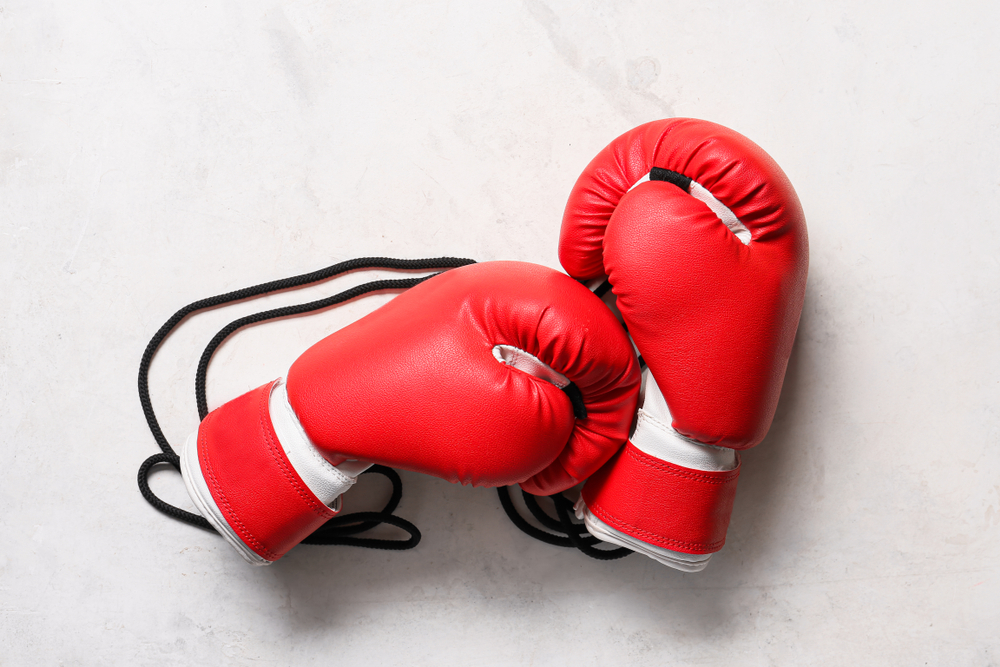Welcome to our special section, Thrive on Campus, devoted to covering the urgent issue of mental health among college and university students from all angles. If you are a college student, we invite you to apply to be an Editor-at-Large, or to simply contribute (please tag your pieces ThriveOnCampus). We welcome faculty, clinicians, and graduates to contribute as well. Read more here.
What is the first thing you think of when you hear the word boxing? Most people would describe it as aggressive and chaotic. I always imagined it would involve aggression coupled with insane workouts. It’s not an environment I ever pictured myself in, but leaving home and traveling across the country for college, combined with a difficult first semester, left me itching for a completely new routine. Vassar was going to whip my mind into shape, but I didn’t feel as though I had the tools to deal with the associated stress.
I found boxing — or maybe boxing found me — during my junior year of high school, but I didn’t set foot in a gym until the start of my second semester at Vassar. My English teacher had us read an essay by Joyce Carol Oates, “The Cruelest Sport,” which explored the paradox of boxing: a sport characterized by renowned athleticism and mental perseverance, both of which are mauled beyond recognition over the duration of each fight. I was fascinated by this delicate relationship between the careful preparation for each fight and the brutal catharsis that ensued when the boxers entered the ring. When our teacher announced that we would be spending a class learning the basics of boxing, I genuinely expected something out of Rocky III: racing around an arid gymnasium, wrapped hands held triumphant overhead. Instead, I was handed a pair of damp gloves and told to line up along the gymnasium baseline. The boxing basics are really that boxing is very tricky. Despite my basic understanding of center of gravity, it was nearly impossible to perform each jab-cross-jab combination. Your body has to swing in the right direction, at the right speed, with the right footwork. If your mind is off for a second, you either fall or get hit in the face. For a sport that supposedly reduces stress, there’s actually quite a lot to think about. I remember feeling all over the place that day, unable to develop the rhythm needed for solid technique.
Back at Vassar, when I arrived on a clear January afternoon at the Precision Boxing Gym for my first class (referred to as an “official consultation” on their website), I was greeted by smells of sweat and leather. Stepping inside the brightly lit lobby, I found that I was mostly correct, although both smells were intermingled with bleach. I perched on a worn couch as I waited for my meeting, observing the hundreds of posters and straggling Christmas decorations adorning the walls. Precision’s fighters were everywhere, some captured in the action of a fight, others posed sweaty and triumphant following a bout. The odor of bleach followed us as we made our way to the ring. My hands were swathed in a tight black wrap this time, and the gloves were new (and dry). We ran through some basic combinations, same as my junior year, and I got hit a few times, same as my junior year. The combinations sounded like a code, “1-1-1-2-1! 1-2-3-4-5!”, but translated into the satisfying thwack of my glove into the heavy bag. My stress had a final destination, reached as quickly as I could extend my arm. Some may feel limited by the small number of punches, but I love the simplicity; you either get creative with what you’ve got, or you lose the fight. It’s a mentality that is governed both by the body’s mechanical limitations and by the fighter themself, forcing each of us to develop a unique combat style. The best fighters hit hard while darting gracefully around their opponent.
In addition to developing grace and control, boxing teaches you about accuracy, commitment, the art of repetition, and confidence (both of the mind and body). It forces you to get over your fear of getting hit, either by a gloved hand or an unexpected situation. If I can repeat a combination, I can do another practice problem. If I can power through a heavy bag set, I can crank out the final piece of my paper. If I’m confident enough to enter the ring as a unique fighter, then I’m brave enough to throw myself into the process of self-discovery that college entails. The development of one’s identity (in relation to one’s campus and the world) is already overwhelming when you have a framework of identity in place before orientation. In the same way that my decision to attend Vassar is challenging me to think differently about the way I move through the world, boxing pushes you so far outside your comfort zone it feels silly to go back in.
So what’s my new routine? Going to a gym that smells like bleach, wrapping my hands, and finding my style while I work.
Subscribe here for all the latest news on how you can keep Thriving.
More on Mental Health on Campus:
What Campus Mental Health Centers Are Doing to Keep Up With Student Need
If You’re a Student Who’s Struggling With Mental Health, These 7 Tips Will Help
The Hidden Stress of RAs in the Student Mental Health Crisis


